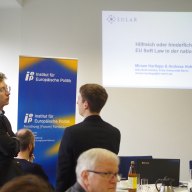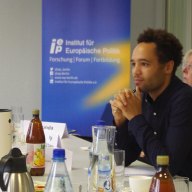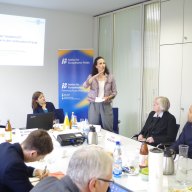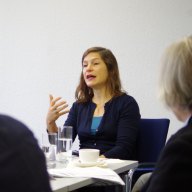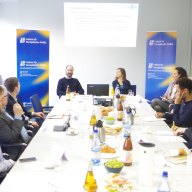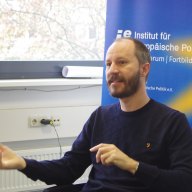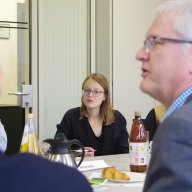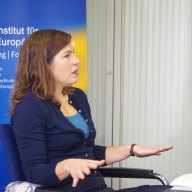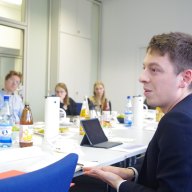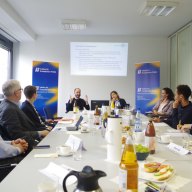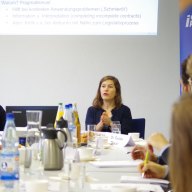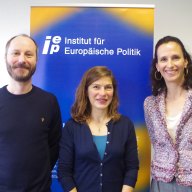Breakfast Debate: “Opportunity or obstructive? EU Soft Law in national practice” on 6 November 2019 in Berlin
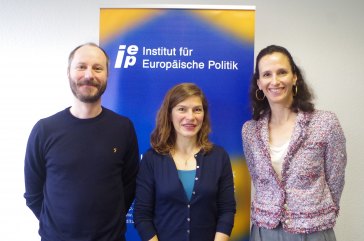
European Union institutions increasingly use “soft law” in their policy making, i.e. non-legally binding documents such as recommendations, communications, guidelines or handbooks. Soft law is used, on the one hand, where the European Union has only a few legislative powers, for instance in the labor market or in social policy. In many cases, however, soft law documents are also used alongside binding legal acts. They often answer practical questions of implementation or make concretions, such as European nature conservation requirements, European antitrust law, regulations on financial market supervision or the awarding of public contracts. And while some emphasise the benefits of these soft tools — they are faster and more flexible to use than hard law — others complain about the lack of legitimacy of the rules.
On Wednesday, 6 November 2019, IEP guests Prof. Dr. Miriam Hartlapp and Dr. Andreas Hofmann from Free University of Berlin presented results of the interdisciplinary research project SoLaR (Soft Law Research Network). The topic of our Breakfast Debate was “Opportunity or obstructive? EU Soft Law in national practice”.
We discussed with you how administrations and courts use EU Soft Law in the areas of competition, financial market, environment and social affairs spheres; the role of the EU Soft Law in European governance in the areas mentioned above and the effects on national and local levels.
A more detailed report will be published soon.
